2019 Project Profiles
2019 Program Cohort
-

Aarthi Koripelly
High Schooler, Barrington High School -
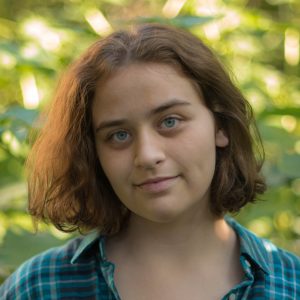
Alexandra Nisenoff
Undergraduate, The University of Chicago -
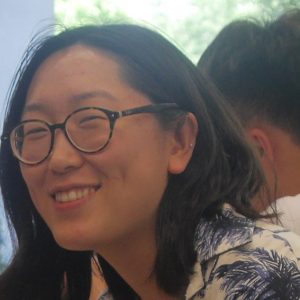
April Wang
Undergraduate, The University of Chicago -

Ashwin Aggarwal
Undergraduate, University of California, Berkeley -
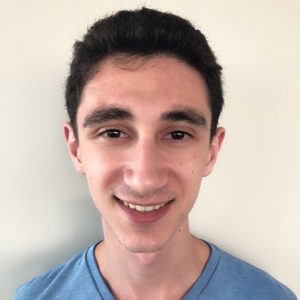
Avery Schwartz
High Schooler, The University of Chicago Laboratory Schools -
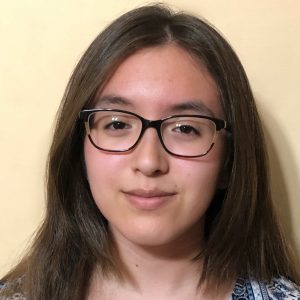
Christine Jacinto
High Schooler, Lane Tech College Prep -
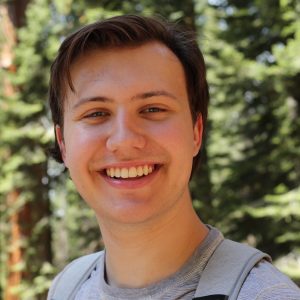
Ethan Truelove
Undergraduate, The University of Chicago -

Eva Tuecke
High Schooler, Illinois Mathematics and Science Academy -
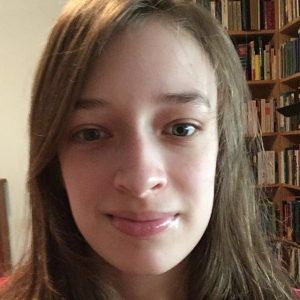
Helena Abney-McPeek
Undergraduate, Harvard University -
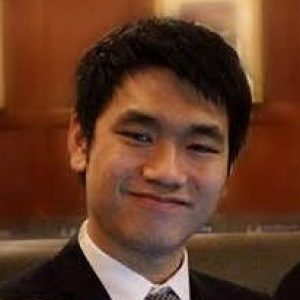
Jarvis Lam
Undergraduate, The University of Chicago -
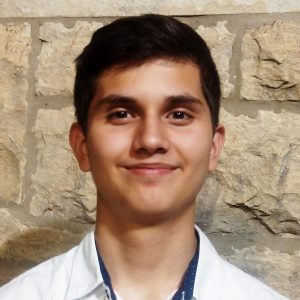
Julio Ramirez
High Schooler, Northside College Preparatory High School -

Kathryn Koenig
Masters Student, Masters in Computational Analysis & Public Policy at the University of Chicago -
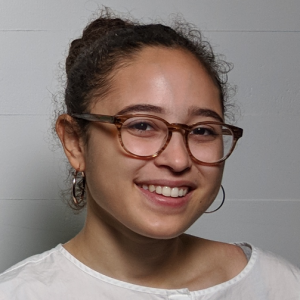
Margot Herman
Undergraduate, The University of Chicago -
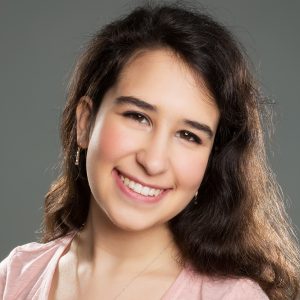
Maxine King
Undergraduate, The University of Chicago -
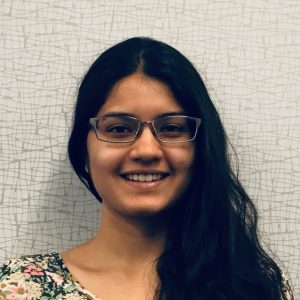
Medha Goyal
Undergraduate, The University of Chicago -
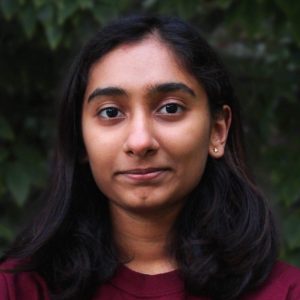
Neha Lingareddy
Undergraduate, The University of Chicago -
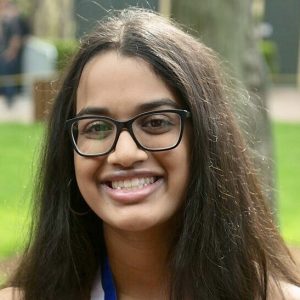
Nikki Chakravarthy
Undergraduate, The University of Chicago -
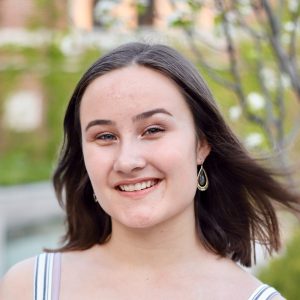
Olivia Morkved
Undergraduate, The University of Chicago -

Peng Wei
Masters Student, Masters in Computational Analysis & Public Policy at the University of Chicago -
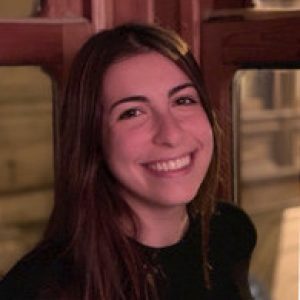
Ruby Werman
Undergraduate, University of California, Berkeley -
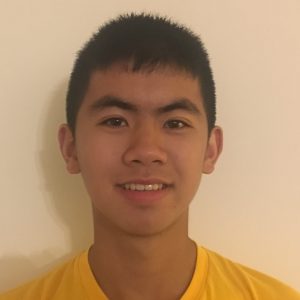
Ryan Wong
High Schooler, Whitney M. Young Magnet High School -
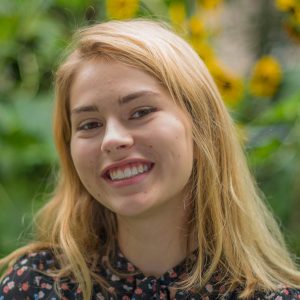
Sydney Jenkins
Undergraduate, The University of Chicago -

Ted Kim
Undergraduate, The University of Chicago -
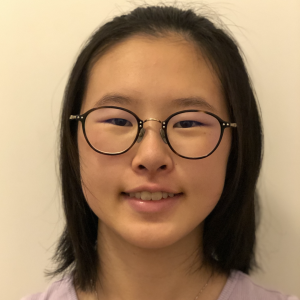
Teresa Lee
High Schooler, Sacred Heart Canossian College (Hong Kong) -

Tobias Ginsburg
Undergraduate, Cornell University -
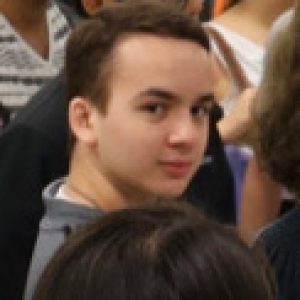
Will Brunner
High Schooler, Northside College Preparatory High School -
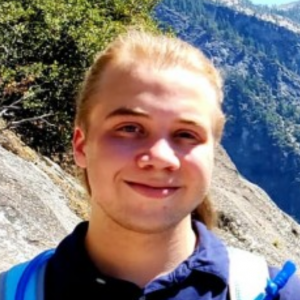
Yair Atlas
Undergraduate, The University of Chicago
Project: Using Machine Learning to Identify Blurry SEM Images
Mentor/Lab: Ryan Chard/Globus Labs
Research Area Keywords: Machine Learning // Image Analysis // Systems & Architecture // Databases
I worked on a project using machine learning and computer vision to detect Scanning Electronic Microscope images of mice brains that were either blurry or focused. I was able to create three different models using first a Laplacian of Gaussian blob detection; then, a neural network; and finally a convolutional neural network. Then, I helped push the models to DLHub for others to use.
Project: Password Reuse & Vulnerability Detection
Mentor/Lab: Blase Ur/SUPERGroup
Research Area Keywords: Security & Privacy // Human-Computer Interaction
In this project, in collaboration with UChicago IT Services, we leverage publicly available data breaches and password modification strategies to generate password guesses for current and previous UChicago accounts, and run a simulated attack to assess the vulnerability of UChicago accounts to password guessing attacks. Information is obtained from users who are identified as vulnerable in this simulated attack using anonymous online surveys. Attitudes, intentions, and planned behavior change are surveyed in an effort to design interventions that promote better password security habits.
Project: Generating Deepfakes with Autoencoders
Mentor/Lab: Matt Baughman/Globus Labs
Research Area Keywords: Machine Learning // Security & Privacy
In recent news, Deepfakes have been written to seem alarmingly easy to make. The aim of my summer project was to generate Deepfakes myself, to gain greater exposure to Machine Learning and to test the learning curve. Using an encoder-decoder architecture, we roughly swapped the faces of two program coordinators (as well as that of Nicholas Cage).
Project: Distance Matters in Science & Scholarship — Analyzing the Impact of Scientific Citations
Mentor/Lab: Eamon Duede/Knowledge Lab
Research Area Keywords: Data Analysis // Spatial Data // Scientific Computing
After extracting metadata from over 26,000 surveyed authors, we ran relational analysis on our data and found a relationship between the influence of an author’s references and the geospatial distance between the author and referenced author’s institution. This relationship is intriguing and offers insight into understanding what types of publications are more influential for authors.
Project: funcX Website Design
Mentor/Lab: Ryan Chard/Globus Labs
Research Area Keywords: Programming Languages // Databases // Web Design
My project was to build a website for the Globus service, funcX (a FaaS platform for science), which is designed to be applied to existing cyberinfrastructures to provide scalable, secure, and on-demand execution of short duration scientific functions. I learned how to use Bootstrap, Flask, and PSQL in order to construct a fully-functional website that scientists and researchers can use to remotely run functions with specified input data.
Project: Fairness in Machine Learning
Mentors/Lab: Prof. Blase Ur, Julia Hanson (BS 2018), Galen Harrison (PhD, CS)/SUPERGroup
Research Area Keywords: Machine Learning // Human-Computer Interaction
I worked on qualitative coding for interviews concerning cloud usage, as well as for data for a fairness in Machine Learning research paper submitted to FAT. I also started a visualization using D3 for sample data from COMPAS.
Project News: The paper that grew out of this research, titled “An Empirical Study on the Perceived Fairness of Realistic, Imperfect Machine Learning Models”, was accepted at the ACM FAT* 2020 Conference.
Project: Data and Learning Hub for Science (DLHub)
Mentors/Lab: Logan Ward & Ryan Chard/Globus Labs
Research Area Keywords: Machine Learning // Systems & Architecture
I began by working on DLHub by creating a module to extract data from various machine learning model architectures and translating them to PyTorch models. I then transitioned to learning about image segmentation, and attempting to determine whether transfer learning with image segmentation could be done efficiently.
Project: Mobile Decision-Making for Doctors Without Internet
Mentor/Lab: Pedro Lopes/HCI Lab
Research Area Keywords: Medicine & Health // Human-Computer Interaction // Mobile Computing
I worked on the Mobile Medicine project, which is aimed at providing Nigerian Doctors with an internet-independent phone interface tool to run computational diagnostics, answer medical queries, and provide realtime knowledge on the spread of infectious disease.
Project: Physical Backdoors in Neural Networks
Research Area Keywords: Artificial Intelligence // Machine Learning // Security & Privacy
My project was about detecting physical backdoor attacks in image-detecting neural networks. I added physical triggers to traffic signs (blue tape or sticky notes along the bottom of the sign) and added these images to a training dataset for a neural network that classifies traffic signs. The goal of the project was to find a way to detect that the network had been attacked and mitigate the attack.
Project: EMS Gesture Classification
Mentor/Lab: Heather Zheng/SAND Lab
Research Area Keywords: Artificial Intelligence // Human-Computer Interaction // Machine Learning // Security & Privacy
I helped build a gesture classification model that classifies 32 different hand gestures generated by electrical muscle stimulation. In doing so, our lab hopes to develop novel and secure human-computer interaction methods and secure communication techniques.
Project: Fairness in Machine Learning
Mentors/Lab: Prof. Blase Ur, Julia Hanson (BS 2018), Galen Harrison (PhD, CS)/SUPERGroup
Research Area Keywords: Machine Learning // Human-Computer Interaction
I worked on the Fairness in Machine Learning project with SUPERgroup. We focused on analyzing empirical data to understand what people perceived to determine a fair machine learning model, among other things. I programmed in JavaScript to help work on a process visualization as part of the project. I also used JavaScript to try and develop summary statistics of the data that was collected as part of our project. I also did qualitative coding for the survey responses used in the project.
Project News: The paper that grew out of this research, titled “An Empirical Study on the Perceived Fairness of Realistic, Imperfect Machine Learning Models”, was accepted at the ACM FAT* 2020 Conference.
Project: Is Climate Change Changing Clouds?
Mentors/Lab: Ian Foster, Michael Maire, Elisabeth Moyer, Rebecca Willett/RDCEP
Research Area Keywords: Biology & Environment // Image Analysis // Machine Learning
My work during the program centered on climate science: because clouds introduce uncertainty into climate projections, our project uses unsupervised machine learning methods to evaluate changing cloud characteristics. In my contribution to the project, I tackled the data processing issues brought on by immense but previously under-utilized NASA satellite data: through employing web scraping and API calls as well as mapping and other data visualization techniques, I simplified and expedited the data downloading and wrangling process.
Project News: Two papers arose from this research, and both were accepted to the American Geophysical Union Fall 2019 meeting: “Cloud Characterization With Deep Learning II” and “Developing Unsupervised Learning Models for Cloud Classification.”
Project: Internet Tracking Transparency
Mentor/Lab: Blase Ur/SUPERGroup
Research Area Keywords: Human-Computer Interaction // Security & Privacy
I worked on a browser extension that highlights the prevalence of third-party tracking on the internet, specifically focusing on drawing attention to the more sinister aspects of tracking. I also worked on a project about advertising and ad transparency on Twitter.
Project: Research Sharing in JupyterHub with Chameleon Cloud
Mentors/Lab: Kate Keahey & Jason Anderson/Chameleon Project Nimbus Team
Research Area Keywords: Scientific Computing // Systems & Architecture
Working with the Nimbus team, we integrated Chameleon’s JupyterHub with Zenodo to make it easier to share, publish, and import research notebooks. I worked on making it easier to share notebook-based research in and out of the JupyterHub environment on Argonne’s Chameleon open testbed. I wrote a full-scale, front-end, and back-end publishing extension for JupyterLab, adjusted the JupyterHub configuration to make it easy to import notebooks, and created a Django website to allow users to share and browse research.
Project News: The poster for this project, titled “Sharing and Replicability of Notebook-Based Research on Open Testbeds”, was accepted at the SC19 International Conference for High Performance Computing, Networking, Storage and Analysis.
Project: Enhancing Breathability of Wearable Devices
Mentor/Lab: Pedro Lopes/HCI Lab
Research Area Keywords: Human-Computer Interaction // Wearable Devices
My project was to improve the breathability of wearable devices that capture biometric data, such as Apple watches and Fitbits, by creating silicone interfaces that can be slotted between the skin and a wearable. The aim for the silicone interface is to pipe out sweat and allow trapped heat to escape, improving user comfort. I experimented with manufacturing techniques and principles of microfluidics to design a process that can be used by hobbyists who only have access to machinery typically found in a makerspace.
Project: Kubernetes Backend for VC3 + SLATE
Mentors/Lab: Dr. Rob Gardner, Lincoln Bryant, & Chris Weaver/MANIAC Lab
Research Area Keywords: Databases // Systems & Architecture
I iterated on scientific software projects VC3 and SLATE by replacing OpenStack backend to create ‘login pods’ that can be dynamically provisioned on a lightweight Kubernetes backend, which could improve hardware usage by 2-3 times. I used tools such as Docker, Kubernetes, and Jenkins, and expanded my knowledge of Python, UNIX Shell programming languages, and Linux authorization and authentication mechanisms.
Project: Queue Prediction for Supercomputers
Mentor/Lab: Ryan Chard/Globus Labs
Research Area Keywords: Machine Learning // Systems & Architecture
Research in many scientific domains require significant computational power resulting in limitations such as the expense to grab new resources and jobs being initiated only after a certain number of nodes become available. Therefore it is essential to incorporate intelligence in computing resource management. One of the key components of this intelligence is being able to predict queue wait times for jobs running through supercomputers using AWS and Parsl. In my project, I leveraged Amazon SageMaker, a cloud Machine Learning (ML) platform to create, train, and deploy a machine learning model to predict queue wait times.
Project: “If This Then That” — Generating Predictive Rules for Smart Devices Based on Human Behavior
Mentor/Lab: Dr. Blase Ur & Weijia He (PhD Candidate, CS)/SUPERGroup
Research Area Keywords: Human-Computer Interaction // Internet of Things
I programmed features into the backend of an IoT application using a Django web framework. I helped a team of IoT researchers collect data using this app on participants’ interactions with smart devices. Our team is working on synthesizing data to automatically generate predictive IFTTT-style rules tailored to an individual user’s behavior. I also designed a visualization feature so that individuals can better understand their usage patterns and determine whether the generated rules align with their daily behaviors.
Project: Quantifying Social Determinants of Cardiovascular Disease
Mentor: Corey Tabit
Research Area Keywords: Machine Learning // Medicine & Health // Spatial Data
Our project focused on determining spatiotemporal individual and composite social risk scores as they relate to blood pressure. This summer, we aimed to identify the optimal spatiotemporal buffer of crime that affects people’s blood pressure most.
Project News: The paper that grew out of this research, titled, “Acute Effects of Violent Crime on Blood Pressure in Chicago,” was published in the Journal of the American College of Cardiology in March 2020.
Project: Is Climate Change Changing Clouds?
Mentors/Lab: Ian Foster, Michael Maire, Elisabeth Moyer, Rebecca Willett/RDCEP
Research Area Keywords: Biology & Environment // Image Analysis // Machine Learning
We explored how deep learning can be applicable to discover new cloud features from big satellite data. To find the new cloud features, we built a data analysis pipeline where we trained a deep neural network, extracted dimension-reduced clouds information, and then passed the compressed representation to a clustering algorithm.
Project News: Two papers arose from this research, and both were accepted to the American Geophysical Union Fall 2019 meeting: “Cloud Characterization With Deep Learning II” and “Developing Unsupervised Learning Models for Cloud Classification.”
Project: Extracting Metadata with XtractHub
Mentor/Lab: Tyler Skluzacek/Globus Labs
Research Area Keywords: Databases
XtractHub is a dynamic metadata extraction workflow. This summer I improved the efficiency of multiple metadata extractors, implemented Docker into the XtractHub workflow, and developed a web server for processing individual file metadata.
Project News: The paper that grew out of this research, titled “Serverless Workflows for Indexing Large Scientific Data”, was accepted at the Fifth International Workshop on Serverless Computing (WoSC) 2019.
Project: Is Climate Change Changing Clouds?
Mentors/Lab: Ian Foster, Michael Maire, Elisabeth Moyer, Rebecca Willett/RDCEP
Research Area Keywords: Biology & Environment // Image Analysis // Machine Learning
I helped develop a machine learning algorithm for identifying different cloud classes based on satellite images. We hope to use our model to better understand trends in cloud cover, which plays a critical role in climate change.
Project News: Two papers arose from this research, and both were accepted to the American Geophysical Union Fall 2019 meeting: “Cloud Characterization With Deep Learning II” and “Developing Unsupervised Learning Models for Cloud Classification.”
Project: Mobile Decision-Making for Doctors Without Internet
Mentor/Lab: Pedro Lopes/HCI Lab
Research Area Keywords: Medicine & Health // Human-Computer Interaction // Mobile Computing
Mobile Medicine is a new approach to patient diagnostic and record-keeping approach. Due to restrictions in wifi growth, areas in under-developed nations lack modern diagnostic-aids and electronic medical records. Mobile Medicine aims to fix that by creating an SMS-protocol based app that both collects patient information, and provide an accurate adaptive diagnosis.
Project: funcX Website Design
Mentor/Lab: Ryan Chard/Globus Labs
Research Area Keywords: Databases // Programming Languages // Website Design
This summer, I worked on funcX web service, which is a serverless supercomputing project. It allows users to write, edit, delete, and execute functions over mobile devices with registered endpoints. I mainly worked on the user interface – the website – by writing codes to determine the design of webpages and ways of extracting data from the database with Python, HTML, CSS, and SQL codes.
Project: Globus Automate Cloud Service
Mentor/Lab: Ryan Chard/Globus Labs
Research Area Keywords: Databases // Human-Computer Interaction // Systems & Architecture
Project: Bioinformatics Workflow Migration Between Fred Hutchinson Cancer Research Center & Globus Genomics
Mentors/Lab: Paul Davé & Alex Rodriguez/Globus Genomics
Research Area Keywords: Medicine & Health // Systems & Architecture
Project: Making Spatial Access Measures Accessible: A New Python Package and AWS Tool
Mentors/Lab: Dr. James Saxon & Dr. Julia Koschinsky/Center for Spatial Data Science
Research Area Keywords: Medicine & Health // Spatial Data
I worked on a project aiming to help researchers calculate spatial access with a very simple interface. I made a website which allows users to easily calculate how easily people living in a certain location have access to a certain resource. This can be used to determine where there isn’t enough healthcare and other important goods.
Project News: The PySAL (Python Spatial Analysis Library) package in which this research project culminated is now available online.